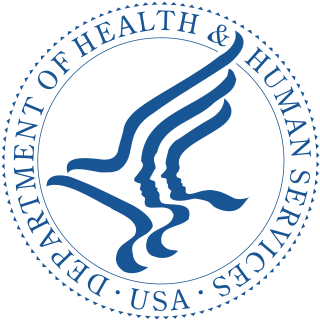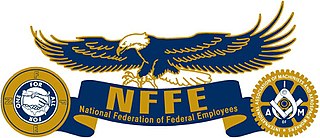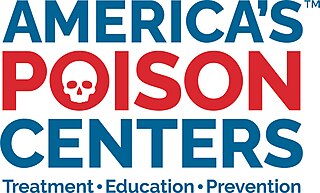
The United States Department of Health and Human Services (HHS) is a cabinet-level executive branch department of the U.S. federal government created to protect the health of the U.S. people and providing essential human services. Its motto is "Improving the health, safety, and well-being of America". Before the separate federal Department of Education was created in 1979, it was called the Department of Health, Education, and Welfare (HEW).
In the United States, federal grants are economic aid issued by the United States government out of the general federal revenue. A federal grant is an award of financial assistance from a federal agency to a recipient to carry out a public purpose of support or stimulation authorized by a law of the United States.
A birth certificate is a vital record that documents the birth of a person. The term "birth certificate" can refer to either the original document certifying the circumstances of the birth or to a certified copy of or representation of the ensuing registration of that birth. Depending on the jurisdiction, a record of birth might or might not contain verification of the event by a healthcare professional such as a midwife or doctor.
A Master of Public Administration (MPA) is a specialized professional graduate degree in public administration that prepares students for leadership roles, similar or equivalent to a Master of Business Administration but with an emphasis on the issues of public services.
Vital statistics is accumulated data gathered on live births, deaths, migration, fetal deaths, marriages and divorces. The most common way of collecting information on these events is through civil registration, an administrative system used by governments to record vital events which occur in their populations. Efforts to improve the quality of vital statistics will therefore be closely related to the development of civil registration systems in countries. Civil registration followed the practice of churches keeping such records since the 19th century.
The National Center for Health Statistics (NCHS) is a U.S. government agency that provides statistical information to guide actions and policies to improve the public health of the American people. It is a unit of the Centers for Disease Control and Prevention (CDC) and a principal agency of the U.S. Federal Statistical System. It is headquartered at University Town Center in Hyattsville, Maryland, just outside Washington, D.C.

The Association of Research Libraries (ARL) is a nonprofit organization of 127 research libraries at comprehensive, research institutions in Canada and the United States. ARL member libraries make up a large portion of the academic and research library marketplace, spending $4 billion every year on information resources and actively engaging in the development of new models of scholarly communications.
The American Association of Motor Vehicle Administrators (AAMVA) is a non-governmental, voluntary, tax-exempt, nonprofit educational association. AAMVA is a private corporation which strives to develop model programs in motor vehicle administration, police traffic services, and highway safety.
Civil registration is the system by which a government records the vital events of its citizens and residents. The resulting repository or database has different names in different countries and even in different subnational jurisdictions. It can be called a civil registry, civil register, vital records, and other terms, and the office responsible for receiving the registrations can be called a bureau of vital statistics, registry of vital records and statistics, registrar, registry, register, registry office, or population registry. The primary purpose of civil registration is to create a legal document that can be used to establish and protect the rights of individuals. A secondary purpose is to create a data source for the compilation of vital statistics.

General Register Office or General Registry Office (GRO) is the name given to the civil registry in the United Kingdom, many other Commonwealth nations and Ireland. The GRO is the government agency responsible for the recording of vital records such as births, deaths, and marriages, which may also include adoptions, stillbirths, civil unions, etc., and historically, sometimes included records relating to deeds and other property transactions.
Health information exchange (HIE) is the mobilization of health care information electronically across organizations within a region, community or hospital system. Participants in data exchange are called in the aggregate Health Information Networks (HIN). In practice, the term HIE may also refer to the health information organization (HIO) that facilitates the exchange. The goal of HIE is to facilitate access to and retrieval of clinical data to provide to public health authorities in analyses of the health of the population.

Vital records are records of life events kept under governmental authority, including birth certificates, marriage licenses, separation agreements, divorce certificates or divorce party and death certificates. In some jurisdictions, vital records may also include records of civil unions or domestic partnerships.

The National Council of Architectural Registration Boards (NCARB) is a nonprofit organization comprising the legally constituted architectural registration boards of the 50 states, the District of Columbia, Guam, the Northern Mariana Islands, Puerto Rico, and the U.S. Virgin Islands as its members. Its mission is to collaborate with licensing boards to facilitate the licensure and credentialing of architects to protect the health, safety, and welfare of the public.
Halbert L. Dunn, M.D. (1896–1975) was the leading figure in establishing a national vital statistics system in the United States and is known as the "father of the wellness movement".

The National Federation of Federal Employees (NFFE) is an American labor union which represents about 100,000 public employees in the federal government.

America's Poison Centers is a national nonprofit organization founded in 1958 that represents the nation's 55 poison centers. America's Poison Centers supports Poison Centers in their public health mission to prevent poisonings, provide education, conduct scientific research and treat individuals exposed to poisoning from medications, environmental events, plants, animals, and household products or toxins. America's Poison Centers also supports the efforts of poison centers and interested individuals to reduce morbidity and mortality from unintentional poisonings. America's Poison Centers sets standards for Poison Center operations and certifies specialists in poison information who are available 24/7 to respond to public, health-care provider and emergency medical service personnel requests for assistance. In addition, America's Poison Centers maintains the National Poison Data System (NPDS), the only near real-time poison information and surveillance database in the United States.
The New York State Department of Health is the department of the New York state government responsible for public health. Its regulations are compiled in title 10 of the New York Codes, Rules and Regulations.
A state health agency (SHA), or state department of health, is a department or agency of the state governments of the United States focused on public health. The state secretary of health is a constitutional or at times a statutory official in several states of the United States. The position is the chief executive official for the state's state health agency, chief administrative officer for the state's Board of Health, or both.
In the United States of America, the putative father registry is a state level legal option for unmarried men to document through a notary public any woman they engage with in intercourse, for the purpose of retaining parental rights for any child they may father.
In African-American history, the post–civil rights era is defined as the time period in the United States since Congressional passage of the Civil Rights Act of 1964, the Voting Rights Act of 1965, and the Fair Housing Act of 1968, major federal legislation that ended legal segregation, gained federal oversight and enforcement of voter registration and electoral practices in states or areas with a history of discriminatory practices, and ended discrimination in the renting and buying of housing.







